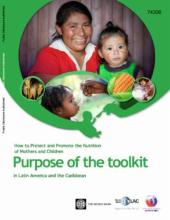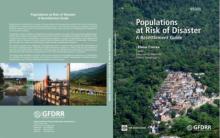Land Library Search
Through our robust search engine, you can search for any item of the over 73,000 highly curated resources in the Land Library.
If you would like to find an overview of what is possible, feel free to peruse the Search Guide.
/ library resources
Showing items 1 through 9 of 10.This toolkit is the first of its kind to provide information on promoting and protecting the nutritional status of mothers and children in crises and emergencies. Latin America and the Caribbean is one of the most vulnerable regions in the world to major crises and emergencies.
The primary completion rate for 7 countries-Benin, Burkina Faso, Guinea, Ethiopia, Madagascar, Mozambique, and Niger-more than doubled between 1991 and 2009. Still large differences persist between rich and poor within countries.
The Malaysian economy decelerated as solid domestic demand was not sufficient to offset a weakening external environment. Private consumption growth continued at a healthy pace.
The purpose of this study was to provide a better understanding for policy makers and service providers of mobility and migration among ex-combatants and the effectiveness of Disarmament, Demobilization and Reintegration (DDR) programming in Uganda.
Reforestation measures for degraded lands, strategies for the sustainable management of forest resources, and agroforestry practices that incorporate trees into farming systems are increasingly demonstrating their promise for producing commercialized tree products.
This book is designed for governments that make decisions on the application of preventive resettlement programs as disaster risk reduction measures, as well as for institutions and professionals in charge of preparing and implementing these programs, civil society organizations participating in
This technical note on access to finance addresses six questions: 1) what is the access to and use of financial services in the Philippines, how does it vary, and how does it compare to other countries? 2) What financial services are available to different market segments?
Over the last decade, Kenya's society and economy have changed fundamentally and these deep trends will continue. Rapid population growth and urbanization will create many new challenges which need to be managed well to support Kenya's economic take-off in the medium-term.
In this paper the author analyze the link between spatial agglomeration, spatial disparities and political governance with an emphasis on the Middle East and North Africa (MENA) region.









